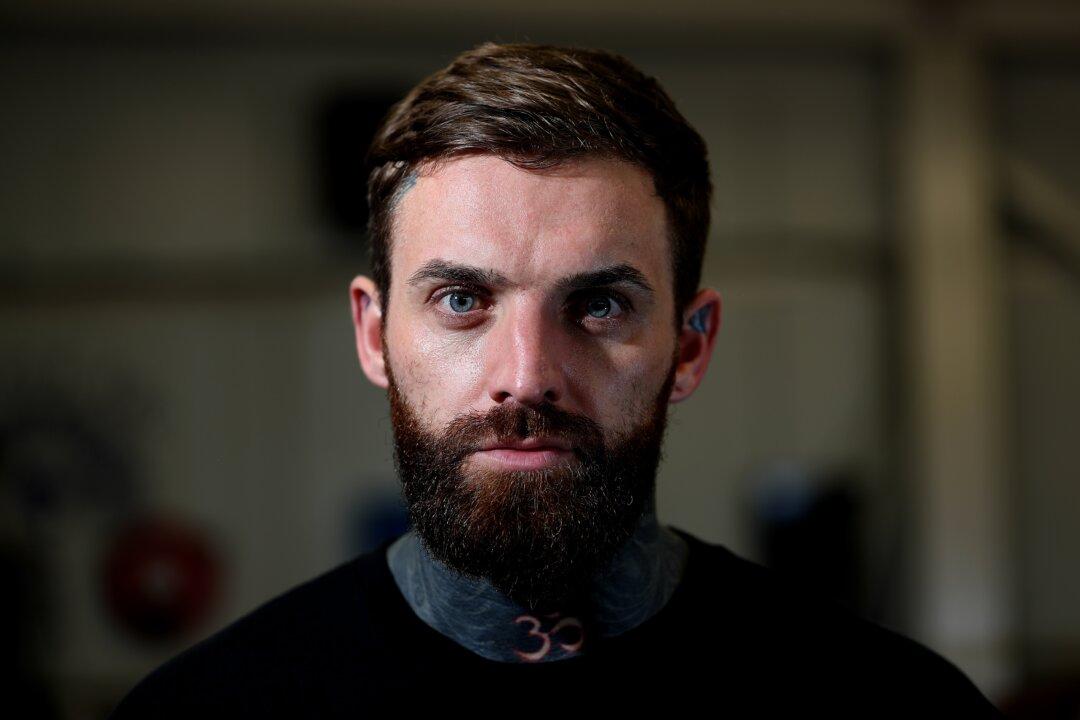Talia Oatway, the former partner of television personality Aaron Chalmers, star of the British reality show “Geordie Shore,” has given an emotional update on the health of their youngest son, Oakley.
The toddler, who turns 2 in August, was born with Apert syndrome, a rare genetic disorder that causes abnormalities in the bones of the skull, hands, and feet.
“He’s got a lumbar drain in for now to help drain the CSF,” she wrote in a since-expired Instagram story. “There will be a meeting Monday to discuss the next step which will probably lead to another operation which could be a shunt.”
In an ensuing video, posted on Monday, Ms. Oatway elaborated on the procedure, which she said has “been so stressful.”
“It’s been a dramatic morning. Oakley’s lumbar drain, the previous one that he had, the site has been stitched, I think, three times, um, but it’s leaking CSF again. So they’re going to try and re-stitch it,” she said, noting that if the lumbar drain doesn’t work, doctors will have to place a shunt, or hollow tube, in Oakley’s brain to help drain the fluid.
“I just see no light at the end of the tunnel at the moment,” she said. “I just feel so guilty for him.”
In a subsequent video, Ms. Oatway said her son spent much of Sunday evening projectile vomiting.
Oakley’s Health Battle
Earlier in June, Ms. Oatway revealed that Oakley had undergone 12 operations already, most recently having three procedures in May.Ms. Oatway, who has a 10-year-old daughter named Siennah from a previous relationship, shares two other children with Mr. Chalmers. The former couple, who dated for five years before separating in the fall of 2022, had their first child, Romeo, in April 2020, before welcoming their second son, Maddox, in April the following year.
“I just want to say thank you to everyone who has sent us love,” she added, noting that the family had “been spending time at the hospital” with Oakley.
Although most cases of Apert syndrome occur without a known family history, the disorder can be inherited. If one parent has the genetic condition, there is a 50 percent chance that their child will be born with the syndrome.
The severity of the symptoms varies from person to person, however, because FGFR2 is vital for bone growth, disruptions to this gene can result in a variety of skeletal development anomalies, such as craniosynostosis. The condition arises when one or more of the fibrous joints in a baby’s skull close too early before the brain can fully form, often resulting in an elongated skull.
Other primary characteristics of the rare disorder include webbed or conjoined fingers, fused toes, a cleft palate, and an underdeveloped upper jaw.
On June 1, Ms. Oatway penned a special Instagram post in honor of Apert Syndrome Awareness Month, observed annually in June, sharing that she had never heard of Apert syndrome prior to Oakley’s birth.
“The last 18 months have been a rollercoaster of emotions… fear, sadness, anxiety, happiness, joy, and amazement. I’ve watched Oakley achieve things I didn’t know would be possible. He is the strongest, bravest, most resilient boy I’ve ever met. His smile lights up the room and I am so very proud of him,” Ms. Oatway said.
“Throughout June I am going to be sharing facts and information about Apert Syndrome to raise awareness and understanding of the condition,” she shared. “To all of the Apert families, and other medical families, you are not alone.”







